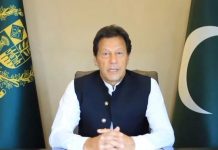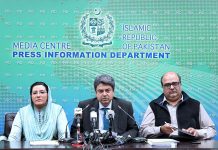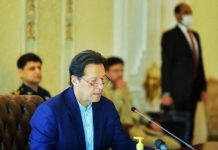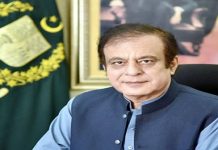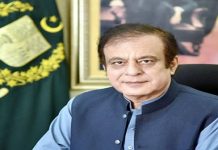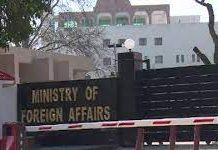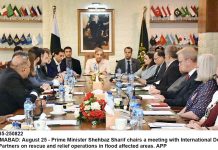ISLAMABAD: Pakistan would remain committed to peace and stability in Afghanistan as it believes that peace in Afghanistan is in Pakistan’s interest, said Foreign Office spokesman Nafees Zakaria on Friday.
In a statement issued from the Foreign Affairs Ministry in response to the media queries regarding Afghan President Ashraf Ghani’s statement, he said “Our efforts for peace, stability and economic progress of Afghanistan is a matter of our commitment to the brotherly people of Afghanistan, millions of whom have been hosted in Pakistan for past 37 years.”
He said that under a transit-trade agreement between the two countries, Pakistan has been extending all facilities for transit of Afghan exports and imports through Pakistan’s ports. Pakistan is also facilitating the transit of Afghan fruits to India through Wagah border.
He said that Pakistan has noted with disappointment the unhelpful statements made by Afghan leadership in complete disregard to the efforts that Pakistan has made and continues to make for peace and stability in Afghanistan.
The FO spokesman said Pakistani security forces are engaged in a valiant fight against terrorism. Their efforts are making an immense contribution to securing the porous border to help bring lasting peace to Afghanistan, and the region, he added. However, Pakistan remains concerned that Afghan soil is being increasingly used by ‘a neighbor’ for subversive activities inside Pakistan and terror financing, Zakaria said.
“We believe that it is important for both Pakistan and Afghanistan to closely work together for peace, progress and stability of our region. It requires a strong commitment for not letting our territories be used against each other. Pakistan is abiding by this solemn commitment,” Nafees added.
India has expressed its readiness to share the material evidence, which Pakistan had been seeking for quite some time for the Mumbai trial.
The Indian Foreign Secretary, in his letter on 6 September 2016, expressed India’s readiness in reply to the Foreign Secretary of Pakistan’s letter, dated 8 September 2015, the spokesman said.
He said, “The material evidence and the cross examination of prosecution witnesses are needed to proceed further with the trial in Pakistan as per our law of the land.”
“Legal aspects and modalities of the proposal contained in the Indian Foreign Secretary’s letter are currently being examined by our legal experts,” Zakaria added.
Prime Minister Nawaz Sharif would leave for the United Nations on Saturday to highlight the continuing grave human rights’ violations by Indian occupation forces in Indian-held Kashmir.
The prime minister will call upon the international community and the UN to live up to their promise of the right to self-determination of the people of Jammu Kashmir in accordance with the relevant UN Security Council resolutions, the Foreign Office said.
The prime minister who would lead Pakistan delegation to the 71st Session of the United Nations General Assembly in New York from September 19, would speak on Pakistan’s position, role and contribution on key international issues ranging from peace and security to development, and highlight the vision and priorities of his government.
The annual session of the General Assembly has special significance as it is attended by a large number of heads of state and the government. The prime minister will make a policy statement during the general debate at the UN General Assembly on September 21.
The prime minister will also participate in the high-level meeting of the General Assembly to address Large Movements of Refugees and Migrants on September 19 and the Leaders’ Summit on Refugees convened by US President Obama of September 20. Pakistan will avail these meetings to highlight its tremendous contribution to the cause of refugees as the host of the world’s largest protracted refugee situation.
Nawaz would urge the international community to devote adequate political attention and support for the voluntary repatriation of Afghan refugees from Pakistan and their sustainable reintegration in Afghanistan. On the sidelines of the UN, the prime minister will hold bilateral meetings with a number of world leaders, including the UN secretary-general.
He is also likely to interact with business leaders and select members of the media, the foreign office said. On the margins of the session, ministerial level meetings of many regional and sub-regional organizations are also held, including OIC, G-77, ECO, SAARC, Commonwealth, D-8 and others. There will also be a meeting of the OIC Contact Group on Jammu Kashmir.

